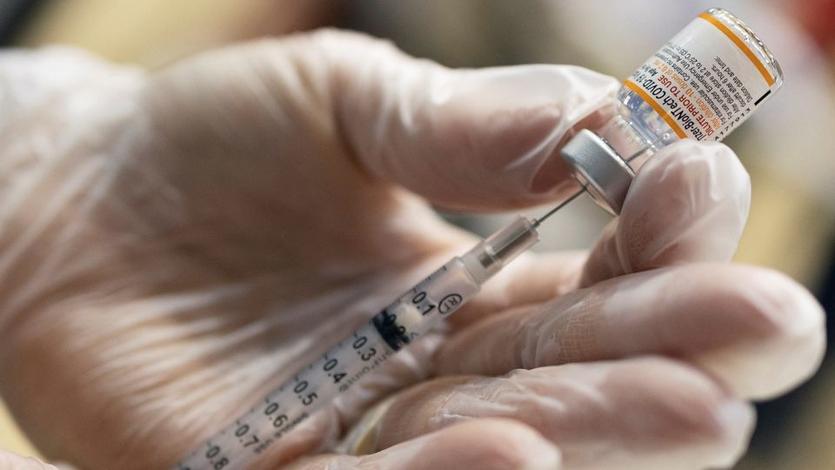 A vaccinator draws a Pfizer-BioNTech coronavirus disease (COVID-19) pediatric vaccine in Lansdale, Pennsylvania, US, Dec 5, 2021. (HANNAH BEIER / REUTERS)
A vaccinator draws a Pfizer-BioNTech coronavirus disease (COVID-19) pediatric vaccine in Lansdale, Pennsylvania, US, Dec 5, 2021. (HANNAH BEIER / REUTERS)
LOS ANGELES – New Omicron subvariants BQ.1 and BQ.1.1 accounted for over half of new COVID-19 cases in the United States in the latest week, according to the latest estimates of the US Centers for Disease Control and Prevention (CDC).
BQ.1.1 made up about 29.4 percent of circulating variants in the week ending Nov 26, and BQ.1 was estimated to make up 27.9 percent, according to CDC data.
The two variants are descendants of Omicron's BA.5 subvariant. They have replaced BA.5 to be the dominant strains in the United States.
The BA.5 accounted for 19.4 percent of new infections in the latest week, CDC data showed.
The CDC is also tracking another new COVID-19 variant of concern known as XBB, which has grown to make up an estimated 3.1 percent of new infections nationwide.
ALSO READ: Denmark health minister expects winter without COVID curbs
The BA.5 accounted for 19.4 percent of new infections in the latest week, US Centers for Disease Control and Prevention data showed
XBB is behind a vast swath of infections across some South Asian countries and has made up an increasing share of reported virus sequences from around the world and in arriving international travelers.
LOS ANGELES, Nov. 28 (Xinhua) -- The devastation that COVID-19 has inflicted globally is truly historic and highlights the world's overall lack of public health preparedness for an outbreak of this magnitude, UStop infectious diseases expert Anthony S. Fauci wrote in a newly-published perspective.
Although COVID-19 was "the loudest wake-up call in more than a century to our vulnerability to outbreaks of emerging infectious diseases," Fauci noted, one success of the response was the rapid development, testing and distribution of COVID-19 vaccines.
The emergence of new infections and the reemergence of old ones are largely the result of human interactions with and encroachment on nature, Fauci wrote in the perspective published in the New England Journal of Medicine.
READ MORE: Former French PM to testify in court on COVID-19 management
As human societies expand in a progressively interconnected world and the human-animal interface is perturbed, opportunities are created, often aided by climate changes, for unstable infectious agents to emerge, jump species, and in some cases adapt to spread among humans, he wrote.
Fauci stressed the importance of improving capabilities to respond to established infectious diseases like malaria and tuberculosis while also responding to emerging threats.
ALSO READ: US CDC concerned for new Omicron subvariants
Fauci will step down from his positions as director of the US National Institute of Allergy and Infectious Diseases (NIAID), chief of NIAID's Laboratory of Immunoregulation and chief medical advisor to US President Joe Biden in December 2022.


